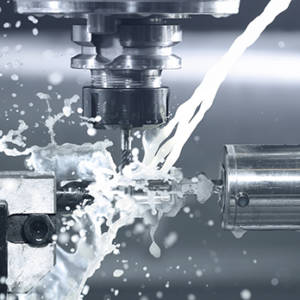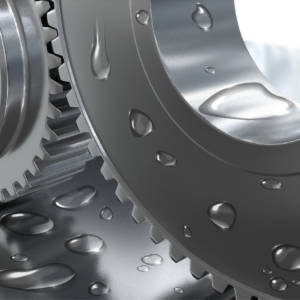Absolute Purity from Our Factory/Containers to Your Warehouse
Deionized Water
What is DI Water?
Ions are electrically charged atoms or molecules found in water that have either a net negative or positive charge. For many applications that use water as a rinse or ingredient, these ions are considered impurities and must be removed from the water. Common water contains several ions that are impurities for industry process purposes. You can find some element ions like:
Calcium, Chlorides, Magnesium, Sulfates, Iron, Nitrates, Manganese, Carbonates, Sodium, Silica, Hydrogen, Hydroxyl, etc.
As you can see, water contains particles which can react with other substances that you could use in a manufacturing process.
To deionize water, efficient resins and filters are used, in both ways: one for positive ions and other for negative ions (cation resin, anion resin). At the end of the deionization process and to test how pure the water is, an electrical current is measured between two poles immersed in the water to be analyzed. If there is no lecture or it is almost null, the water has been purified; on the other hand, if there is an electrical measurement, the water needs to be filtered again until there is no electrical current.
Of course the final container where this water will be poured must be perfectly clean to avoid any contact with external minerals in the air or inside the container itself. Caution in every step of this process will give great results, deionized water that can be used even for human consumption.

Deionized Water for Industrial Purposes
DI Water differs from normal water or distilled water; these would be unusable for some chemical and biological processes.
Where can We Use It?
There are several uses for this kind of water, most of these uses involve industrial manufacturing and / or items for additive supply.
- An antifreeze is an additive which lowers the freezing point of a water-based liquid and increases its boiling point. In the automotive industry DI Water participates in an engine’s coolant system, it avoids rust in the cooling system. Car batteries also use a great deal of water and as long as DI Water does not contain any salt or ions, it will prevent battery discharge.
- In hobby aquariums as well as aquariums for research, the use of this water reduces the creation of algae and other organisms.
- Inside a laboratory it is widely used for instrumental cleaning and for tests, because this element is innocuous and it will not affect the final result.
- In the industry, and specifically in some machinery, DI Water is used to clean. Regular water will not clean efficiently because it contains substances that rust and mineralize parts, axes and joints. A more impressive use is in the press circuits where the remaining substances are cleaned with DI Water; circuits like motherboards, memory cards, net and video components.
- DI Water is used in cooling systems for homes, offices, laboratories and warehouses because of its low conductivity; this means it can stop devices from overheating and to maintain a certain temperature level on them.

Deionized Water in Industrial Processes
- Deionized Water is an essential ingredient in hundreds of applications, including medical, laboratory processes, pharmaceuticals, cosmetics, electronics manufacturing, food processing, plating, countless industrial processes, and even the spot-free rinse water at the local car wash. Typically, it serves as an ultra-pure ingredient, a “perfect” cleaning solvent, or as the foundation of a processed water recovery/reuse strategy.
- DI Water is also used in the manufacture of pharmaceutical and nutraceutical products, active pharmaceutical ingredients (APIs) and intermediates, compendial articles, and analytical reagents.
- In the cosmetics industry DI Water is often used as an ingredient to add purity, stability and performance in many hair and skin care products, where it is sometimes referred to as “aqua” on product ingredient labels.
- In the food sector it is used as both an ingredient and an element in food and beverage processing. As an ingredient, it offers stability, purity and sanitation. As a process element, it is used for sanitation as well.
